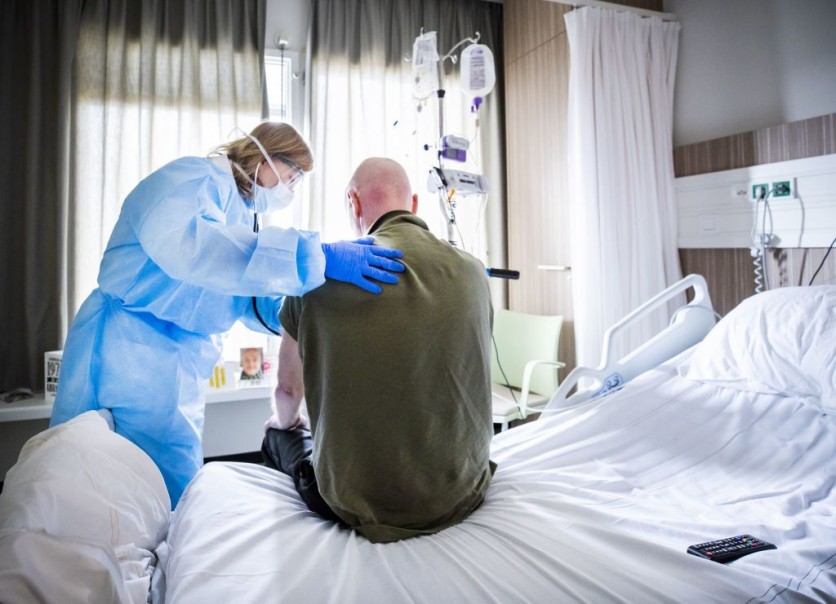A new study reveals that COVID-19 survivors generally struggle to recover completely. Researchers found that two-thirds of severe COVID patients have physical, mental, and cognitive difficulties one year later.
The findings emphasize the hardship of millions of COVID survivors worldwide, according to Dr. Anil Makam, chief researcher and associate professor of medicine at the University of California, San Francisco.
HealthDay Researchers investigated 156 patients who needed long-term acute treatment for severe COVID infections. Most were 65 years old and healthy before getting COVID-19. Most of the COVID patients needed mechanical ventilation, and these facilities specialize in weaning them off and rehabilitating them, researchers added.
Researchers noted that nearly half of the patients had various health issues, and many still needed oxygen. Extended hospital stays caused bedsores and nerve damage, compounding their problems.
Although most COVID survivors reported partial recovery, the study found that most had returned home and resumed employment.
"The long-lasting impairments we observed are common to survivors of any prolonged critical illness, and not specific to COVID, and are best addressed through multidisciplinary rehabilitation," says Dr. Makam.
Previous research revealed that SARS-CoV-2, the virus that causes COVID-19 can permanently damage mitochondria in multiple organs like the heart, kidneys, liver, lungs, and lymph nodes, according to the National Institutes of Health.
Even after the coronavirus disappeared, researchers discovered that acute SARS-CoV-2 infection inhibited mitochondrial genes in the nasopharynx. It may result to heart, kidney, liver, and lymph node damage over time. However, lung tissue mitochondrial gene expression recovered after the infection got cleared.
Animal studies showed that decreased energy production in the lungs during early infection rebounded once the immune system overcome the virus. However, early infection affected mitochondrial gene expression in the brain, even when SARS-CoV-2 was not present.

An attending physician listens to the breathing of a patient who is recovering after admission to an intensive care unit (ICU) in the coronavirus (COVID-19) patient nursing department of The HMC Westeinde Hospital in The Hague on April 4, 2020.
New COVID Vaccine Offers Better Protection, Longer Shelf Life
As experts continue to advocate for vigilance in fighting COVID, pharmaceutical firms continue to improve vaccines. The new Moderna COVID-19 vaccination showed a greater immune response than its existing jab in a late-stage experiment, per CNBC.
Moreover, Moderna's novel vaccine candidate may improve vaccination distribution logistics by extending shelf life and simplifying storage. Thus, developing nations without freezers might distribute the new vaccine because it lasts longer under refrigeration.
Over 11,400 12-year-olds from the US, UK, and Canada participated in the phase three experiment. The new Moderna vaccine was more effective against omicron subvariants BA.4 and BA.5, as well as the original viral strain, than the company's earlier two-part vaccination. Patients over 65, who are at higher risk of COVID-19 complications, demonstrated this improvement.
Biden Administration Prosecutes Individuals Involved in Pandemic Aid Fraud
Meanwhile, the Biden administration announced that the Justice Department's COVID-19 Enforcement Task Force had prosecuted over 3,500 persons with federal offenses, recovered over $1.4 billion in stolen funds, and achieved over 400 civil settlements and judgments in the previous three years.
After Tuesday's action, White House officials and senators proposed measures to increase anti-fraud enforcement funds, extend the statute of limitations on prosecuting crimes, and improve government databases to detect fraudulent payments, according to USA Today.
Attorney General Merrick Garland vowed to go into and prosecute cases of pandemic relief fraud to retrieve stolen US government funds.
Read also: : New Cancer Vaccine Can Shrink Liver Tumors





